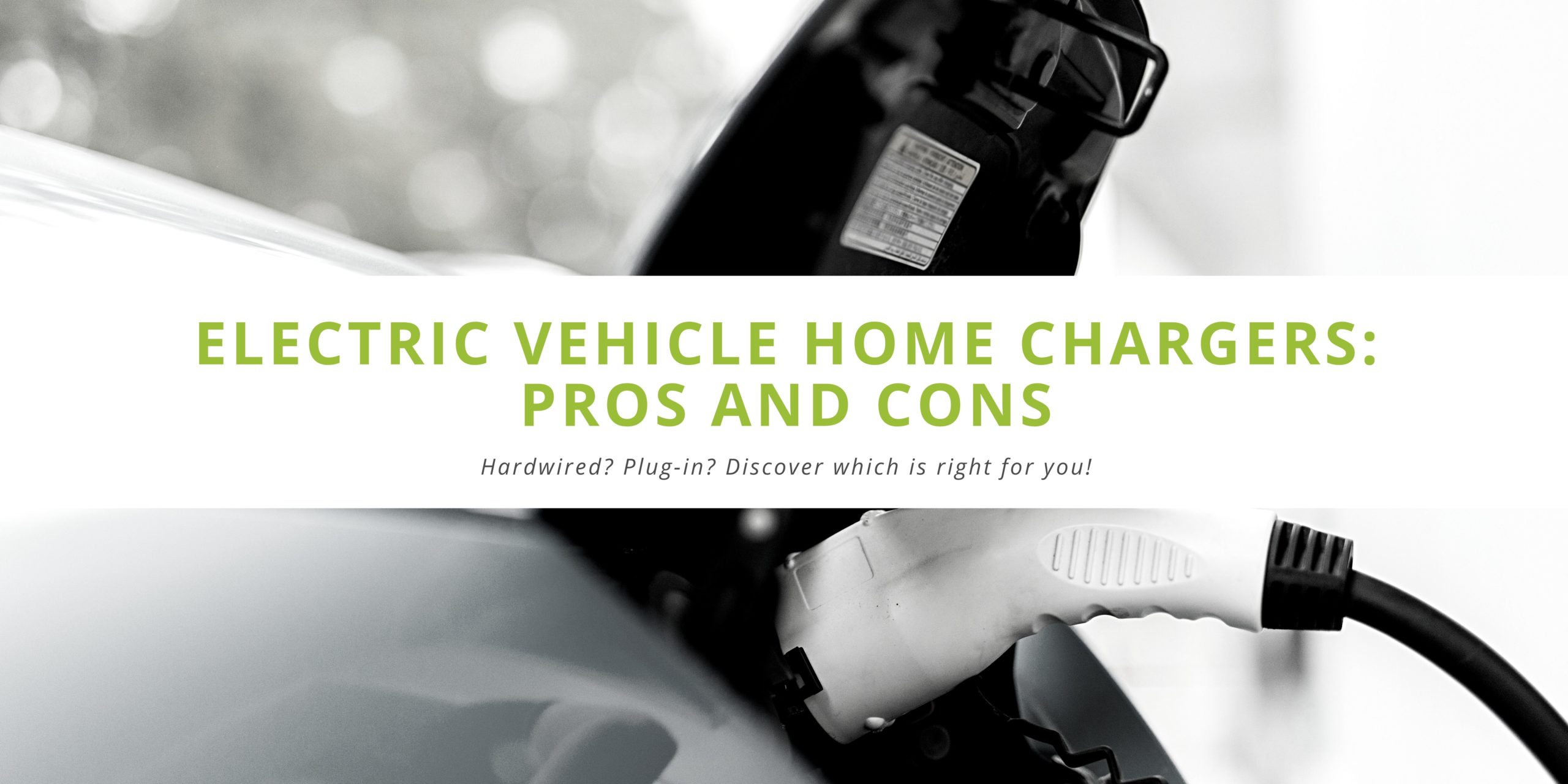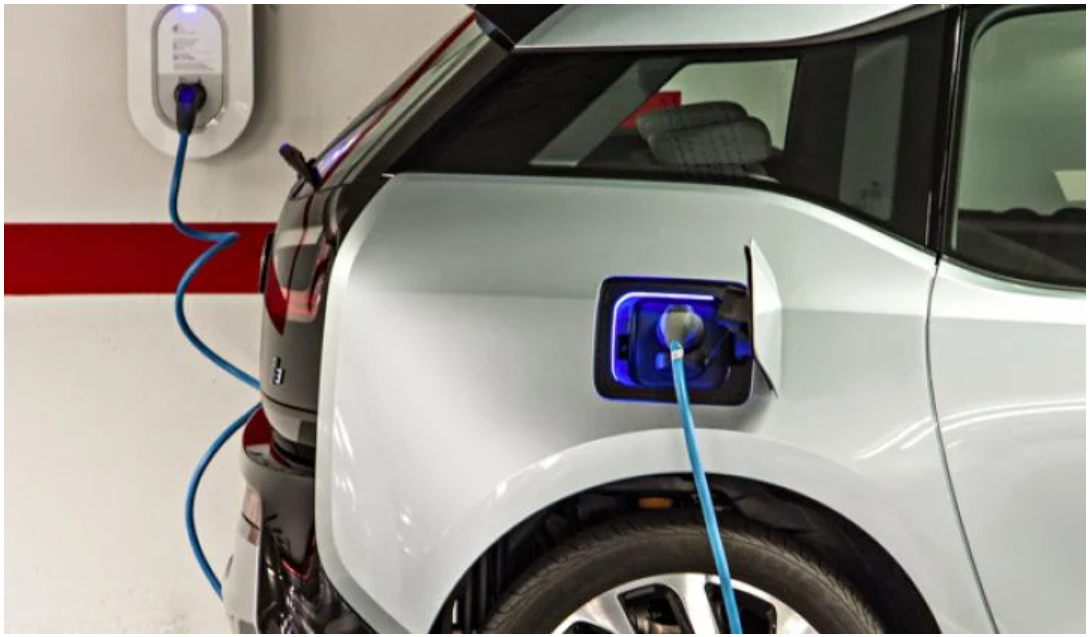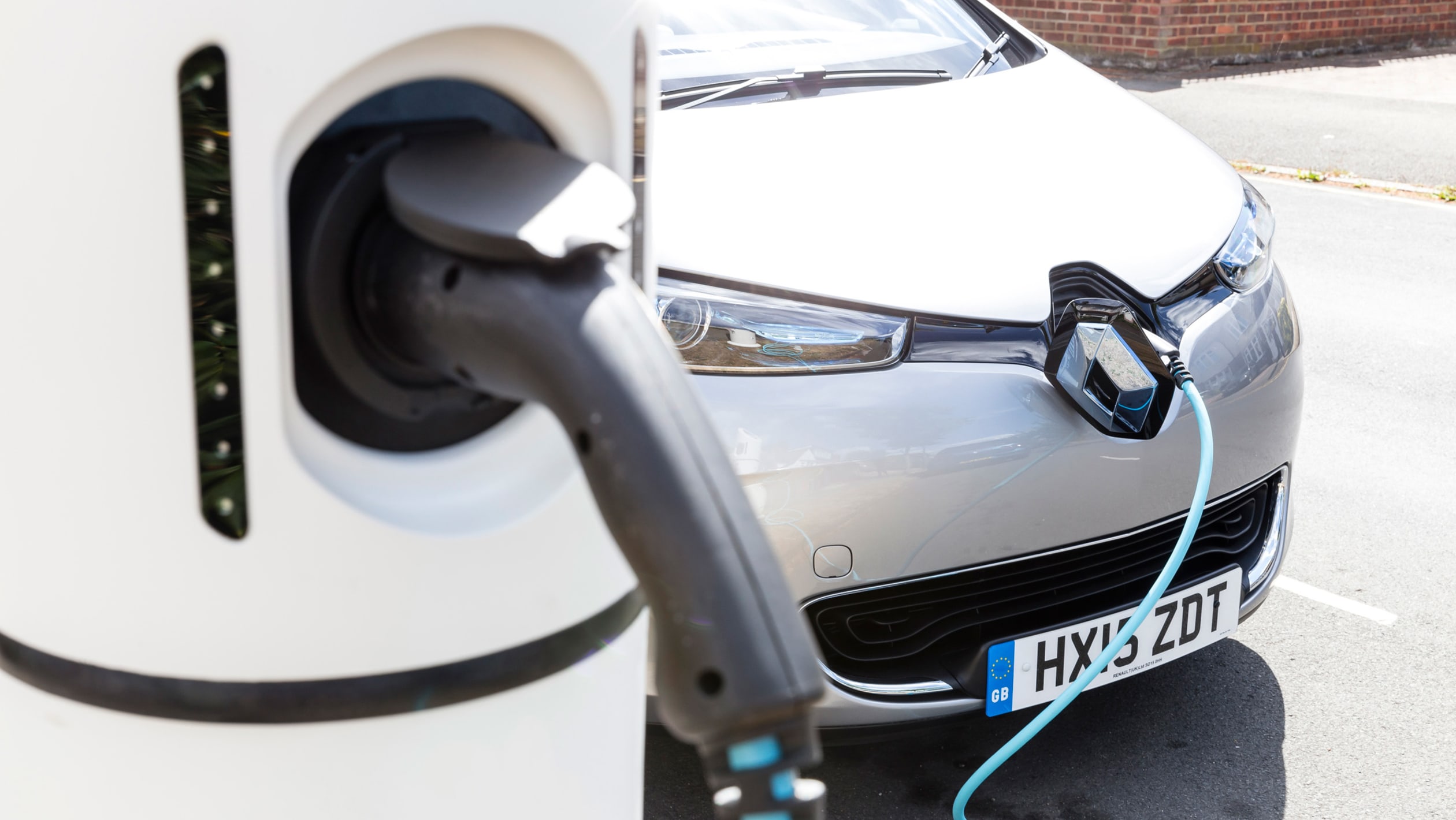
Deciding which electric vehicle home chargers to purchase is the second most important decision when it comes to buying an electric vehicle.
Read time: 3 minutes
Hardwired
Pros
A hardwired station is more durable as it has an attached three foot of flexible conduit coming from the top or bottom of the station (depending on the model). This design ensures that you will always have a cable ready for charging your electric vehicle in the event that you do not have a cable on-hand in your car.
Hardwired units tend to cost less to but and are more permanently fixed to your property. This provides financial savings and more security when it comes to ensuring your electric vehicle is fully charged overnight.
Hardwired units can be installed inside or outside, but outdoor installations are usually recommended as they provide a weather-resistant connection to power.
Cons
Hardwired units offer more permanence and less mobility. If you wanted to move the unit, an electrician would have to come out to uninstall and reinstall the unit at the new location. If you have a move planned or rent a property, a hardwired station probably isn’t the best option.
Credit: Greentech Media
Plug-in
Pros
Instead of the conduit used to power hardwired units, plug-in units use a common 240V plug. This allows the electric vehicle home charger to be mounted easily along the side of a house or in a garage.
Plug-in stations are more portable. They are designed for occasional relocation, so are ideal if you are planning on moving from one home to another in the near future. Likewise, if you live in a flat where there are communal parking areas, you can install a 240V outlet at your designated spot to allow for your electric vehicle home charger to be plugged in.
Plug-ins have a very simple design, as you install an outlet and plug your charging station into it. They can be used outside but a Weatherproof Outlet Cover is required to be installed over the 240V outlet.
Cons
Plug-in units are not meant for continuous plugging and unplugging, as this can wear down the outlet over time. You should only unplug the station when necessary. Additionally, due to the limitations of the 13-amp fuse on the plug-in unit, it can only charge at 3.3kW per hour, therefore it will take longer to complete a full charge.
The chance that someone can come along and tamper with your charger is greater because of the portable aspect of these chargers.
If you don’t already have a 240V outlet, you must have an electrician install a new outlet which matches the plug, this is an extra cost to consider.
Credit: Car Buyer
Conclusion
Despite which electric vehicle home charger unit you decide on, an important thing to remember is that you will need a licensed electrician to verify the capacity of your electric panel.
Likewise, many older houses in the UK were not designed to accommodate electric vehicle home charging so keep in mind that you may need to upgrade your electrical service when choosing your electric vehicle and whichever home charger is right for you.


